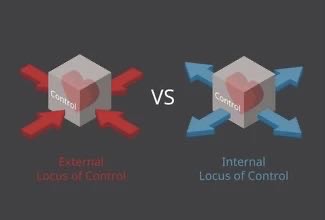
Few people realize just how much control your thoughts have over the way your brain functions. Among teens and young adults, negative self talk is of the utmost prevelance, and it seems as if the negativity is being forced upon us. But what if it’s not?
A study in 2019 showed that those who are optimistic tend to have a lifespan 11-15% higher than those who are not. So what is optimism? Optimism can be identified as hopefulness and confidence about the future or the successful outcome of something. Many times in life, the human mind tends to focus on the negative as well as all the things it does not have. Along with this, the mind tends to negate accountability and run from uncomfortable feelings. What if we could reprogram the mind to reshape these thoughts into what some would consider delusional optimism?
Locus of control, though lesser-known, is the degree to which people believe that they, as opposed to external forces, have control of the outcome of the events in their lives. One can either have an internal locus of control, meaning you believe you have the majority of control over the events that occur in your life, as well as your reaction to them, or an external locus of control, believing that outside forces act upon the events in your life and have the majority of control. If our society could reprogram their minds to an internal locus of control, the mental health of our population would be astronomically better.
For example; if someone were to get a horrible grade on a test. Someone with an external locus of control would say, “The teacher obviously graded it poorly, and didn’t provide enough time for me to study,” They would blame external factors for a negative event in their life. Someone with an internal locus of control would say, “I must not have studied thoroughly enough, and I’ll improve in the future,” The first mindset rejects accountability for one’s actions and blames others for something they ultimately did to themselves. This, on a bigger scale, leads to an unhappy life of blaming others, and never taking responsibility for one’s own actions. The second mindset admits to themselves they were wrong, and instead of beating themselves up about it, uses it as a learning experience, and works to become better in the future. This mindset, on a bigger scale, leads to holding oneself accountable for his actions, as well as a happier, more forgiving life.
When an anonymous student at Plainwell High School was asked if they often think things like “Why does this always happen to me? And “I’m so unlucky.” the student simply said, “Yes,” When another student was asked the same question, they said, “No, I think in my life I’m surrounded by more good than bad,” This exemplifies a mindset that will lead to greater happiness in the future.
Happiness starts from within. Your outside world is a reflection of your inside world. So when you surround yourself with positive things and good thoughts, your life will become more positive and all-together happier.
Ultimately, life is what you make of it. If you believe life is out to get you, and you are a victim of the world, that’s exactly what you will be. If you believe that your life is beautiful, and you have control over your life, that’s exactly what you’ll have. At the end of the day, the choice is yours.







